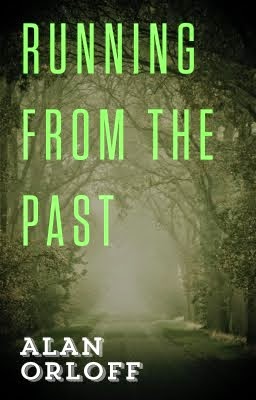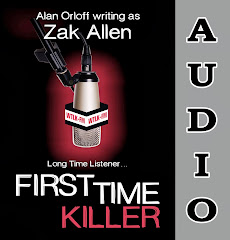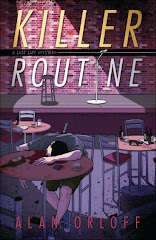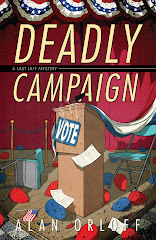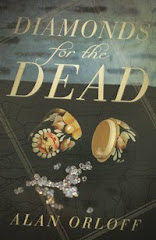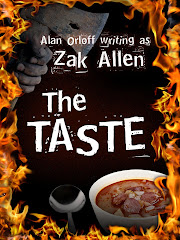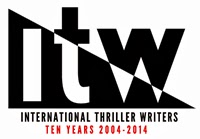This question spawned a few questions of my own.
What is an ambiguous ending? Is it one where some loose ends are left dangling (and it’s clear they haven’t been resolved)? Or is it one where the ending is not clear (either the reader isn’t sure if the main conflict has been resolved, or isn’t clear how)? Am I splitting hairs here?
Of course, I’ve read books with both types of endings.
I have no problem with books that leave a thread (or several) hanging. Most of the time, as long as the main conflict has been resolved one way or the other (oh, who am I kidding? I want the good guys to prevail!), I’m happy. I can deal with a few things going unresolved. After all, real life is plenty messy.
Honestly, I also have no problem with books having an ambiguous ending, with one major caveat: THE ENDING HAS TO MAKE SENSE! If the ambiguity is due to a nonsensical plot twist, or a completely-out-of-character action, or a deus ex machina, then fuggedaboutit!
But in general, I don’t need to know exactly what happened. In fact, sometimes it’s more satisfying to me if I have to ponder several possible outcomes. (For some reason, I find ambiguous endings more “palatable” when they occur in short stories, than in novels. But I think that’s a question for another blog post.)
When I write a novel or story, I try to elicit a certain reaction from my readers after they’ve finished. I’m going for the “Of course, that’s what happened! (Or that’s who did it!) It’s the only solution that makes sense. And boy, I should have seen it coming!” If I can achieve that type of reaction, then I feel I’ve done my job (at least plot-wise).
That’s also the kind of reaction that satisfies me as a reader. And yes, I CAN be satisfied with an ambiguous ending, if I feel the story demands it.
 Most of the books I’ve written have neatly-wrapped endings. I like having good defeat evil. But in THE TASTE, I leave the reader wondering what will happen next. And really, it seemed like the only way I could end the story, given the chain of events and the characters.
Most of the books I’ve written have neatly-wrapped endings. I like having good defeat evil. But in THE TASTE, I leave the reader wondering what will happen next. And really, it seemed like the only way I could end the story, given the chain of events and the characters.
What about you, readers? Where do you stand on ambiguous endings: love them or hate them?
(This entry is “simul-posted” on Criminal Minds.)
Thursday, July 28, 2016
If it Works, it Works.
Thursday, July 14, 2016
If at First, You Don’t Succeed…
How long did it take for you to become an overnight sensation? (How many days/months/years after you began seriously writing a novel did it take for you to get published?)
If I ever become a sensation—overnight or otherwise—I’ll be sure to let everyone know. (Of course, if I become a sensation, then everyone will already know. Hmm…)
My novel publishing history, in brief:
My fiction-writing career began in 2004 when I took a Fairfax County Adult Ed class on genre writing, taught by the wonderful Elaine Raco Chase. I remember writing a story, and although it contained about 80 semi-colons, it didn’t stink.
Which was encouragement enough.
So I kept at it, taking a few writing workshops at The Writer’s Center in Bethesda, MD (from the terrific Ann McLaughlin and the fabulous Noreen Wald). I wrote some short stories, then began a novel, and my work continued “not to stink.” I plugged away, improving my craft, and eventually hooked up with a critique group. I finished a manuscript and revised it, but I could tell it wasn’t “publishable” quality. (Right now, that manuscript is stored in a lead-lined container which is buried in my backyard, posing no threat to society.)
I wrote another manuscript. My writing was getting better, but it still fell short of where I wanted it to be. So, after attending a Citizen’s Police Academy, I began a third manuscript based on an experience during a police ride-along.
I finished that manuscript, then revised, edited, and polished it until I was pleased with the result. I took a workshop on how to write query letters and wrote a killer query. In my bones, I knew I had a winner! Over the course of several months, I sent out about 100 queries to literary agents.
Over the course of those same several months, I got about 100 rejections.
Clearly, my idea of a winner differed from the agents’ ideas. (By the way, I self-published a revised version of that novel, called RIDE-ALONG. Available on Amazon!)
But I was not deterred.
I wrote another novel, FIRST TIME KILLER (for those keeping track, this was manuscript #4). Queried it, and this time, I landed an agent. He sent it around, but no editor bought it. (I ended up revising and self-publishing that novel, too. Available on Amazon!)
My agent wanted to concentrate on non-fiction, so we parted ways.
Again agentless, I went to work on manuscript number five. Finished it and queried it. Found an agent (for those keeping score, this was agent #2), and the novel found a home some months later (at Midnight Ink). That book, DIAMONDS FOR THE DEAD, was a finalist for the Best First Novel Agatha Award. After that, I published two more books with Midnight Ink.
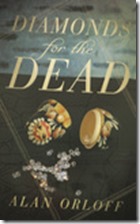 From first workshop to publication: about six years (and it was my fifth manuscript).
From first workshop to publication: about six years (and it was my fifth manuscript).
To date, I’ve published seven novels—three and a half “traditionally” and three and a half “self-published.” I’m also on my third agent. It’s a wacky business!
Lesson learned: Don’t give up!
(*And don’t throw away your early attempts—some of them may, one day, see the light!)
(This entry “simul-posted” on Criminal Minds.)
